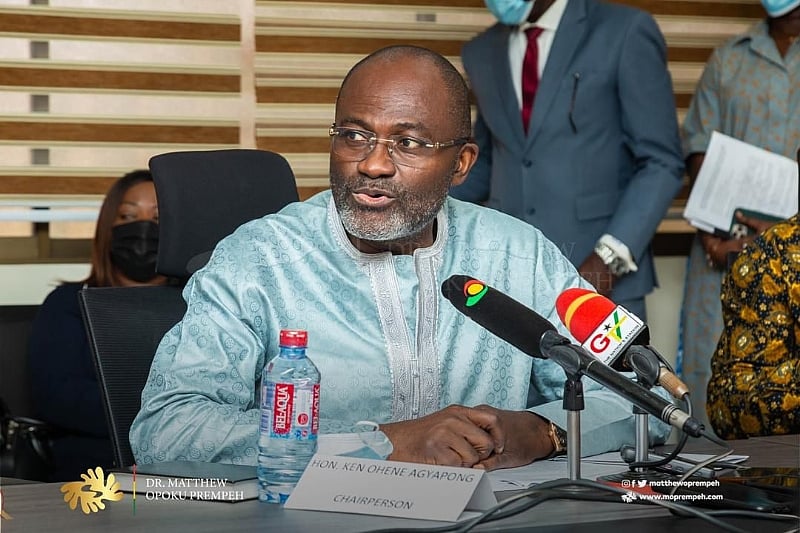Kennedy Agyapong, a prominent figure within the New Patriotic Party (NPP) and a former contender for its flagbearer position, has demonstrated his commitment to the party’s well-being by donating a substantial sum of GH¢1 million. This generous contribution is specifically aimed at addressing the NPP’s struggle to pay outstanding salaries to its dedicated workforce. The party, having transitioned into the role of opposition following the change in government on January 7, 2025, has been grappling with financial constraints, a common predicament for parties no longer holding the reins of power. Agyapong’s donation underscores his recognition of the financial challenges inherent in opposition politics and his willingness to step up and provide crucial support to the party during this period.
Agyapong’s decision to contribute this significant amount was spurred by his awareness of the party’s inability to meet its salary obligations for four months. Upon returning from a trip to Madagascar, he learned of the situation through news reports and was moved to take action. He acknowledged the broader pattern within Ghanaian politics, wherein opposition parties frequently face financial and resource limitations. Agyapong described his donation as a “widow’s mite,” a biblical reference to a small but significant contribution, highlighting his humility despite the substantial amount offered. He emphasized the importance of ensuring the smooth and efficient operation of the party, stressing that the inability to pay staff salaries was a concerning sign.
The financial challenges faced by political parties in opposition often stem from a variety of factors. The most prominent is the loss of access to state resources and the patronage that comes with incumbency. While in power, parties have opportunities to fundraise through government contracts, appointments, and access to influential networks. In opposition, these avenues are significantly curtailed. Additionally, opposition parties often experience a decline in donations from individuals and businesses who may be hesitant to openly support a party not in power. The fear of political repercussions or the perception of diminished influence can deter potential donors.
Moreover, the transition to opposition can be accompanied by internal restructuring and downsizing, which can create additional financial burdens. Severance packages, office closures, and the need to adapt to a less resource-intensive operational structure can strain party finances. Simultaneously, the party must maintain a certain level of visibility and activity to remain relevant and to prepare for future elections. This necessitates ongoing expenditures for staff salaries, office maintenance, campaign activities, and communication efforts, all of which become challenging to sustain without adequate funding.
Agyapong’s donation, therefore, serves not only as a crucial financial injection for the NPP but also as a symbolic gesture of support and solidarity. It underscores his commitment to the party’s long-term viability and its ability to effectively perform its role as the opposition. By addressing the immediate concern of unpaid salaries, he is contributing to the stability and morale of the party’s workforce, enabling them to continue their essential work. This proactive measure is crucial for ensuring the party’s ability to hold the government accountable, articulate alternative policies, and prepare for future electoral contests.
The significance of Agyapong’s donation extends beyond its monetary value. It highlights the responsibility of party members, particularly those with financial means, to contribute to the party’s well-being, especially during challenging times. His action sets a precedent for other potential donors and underscores the importance of collective effort in sustaining a vibrant and effective political party. By stepping forward to address the NPP’s financial needs, Agyapong has demonstrated his commitment to the party’s principles and its enduring relevance in Ghana’s political landscape. His contribution reinforces the notion that a strong opposition is essential for a healthy democracy and that supporting its functionality is a shared responsibility.














